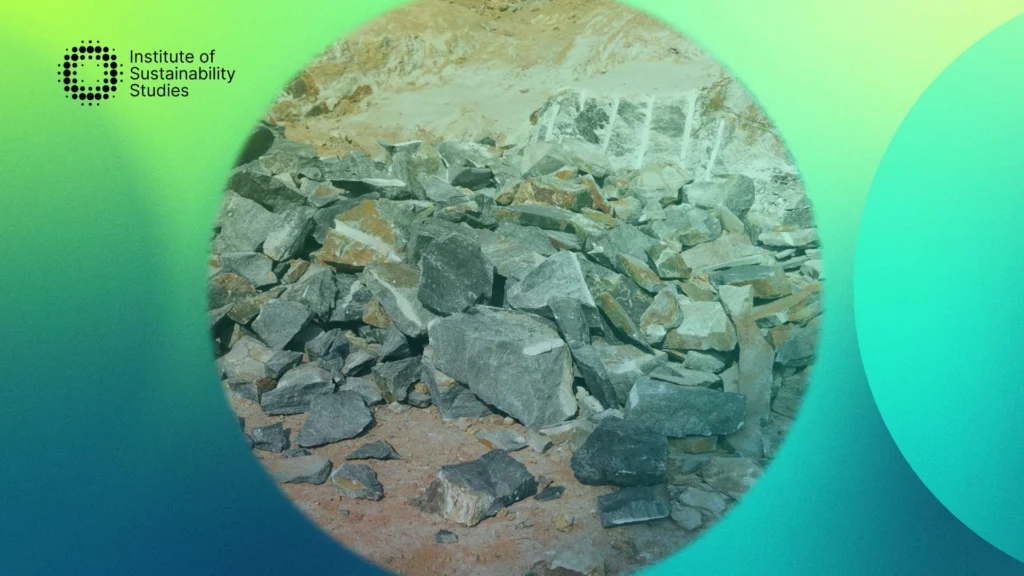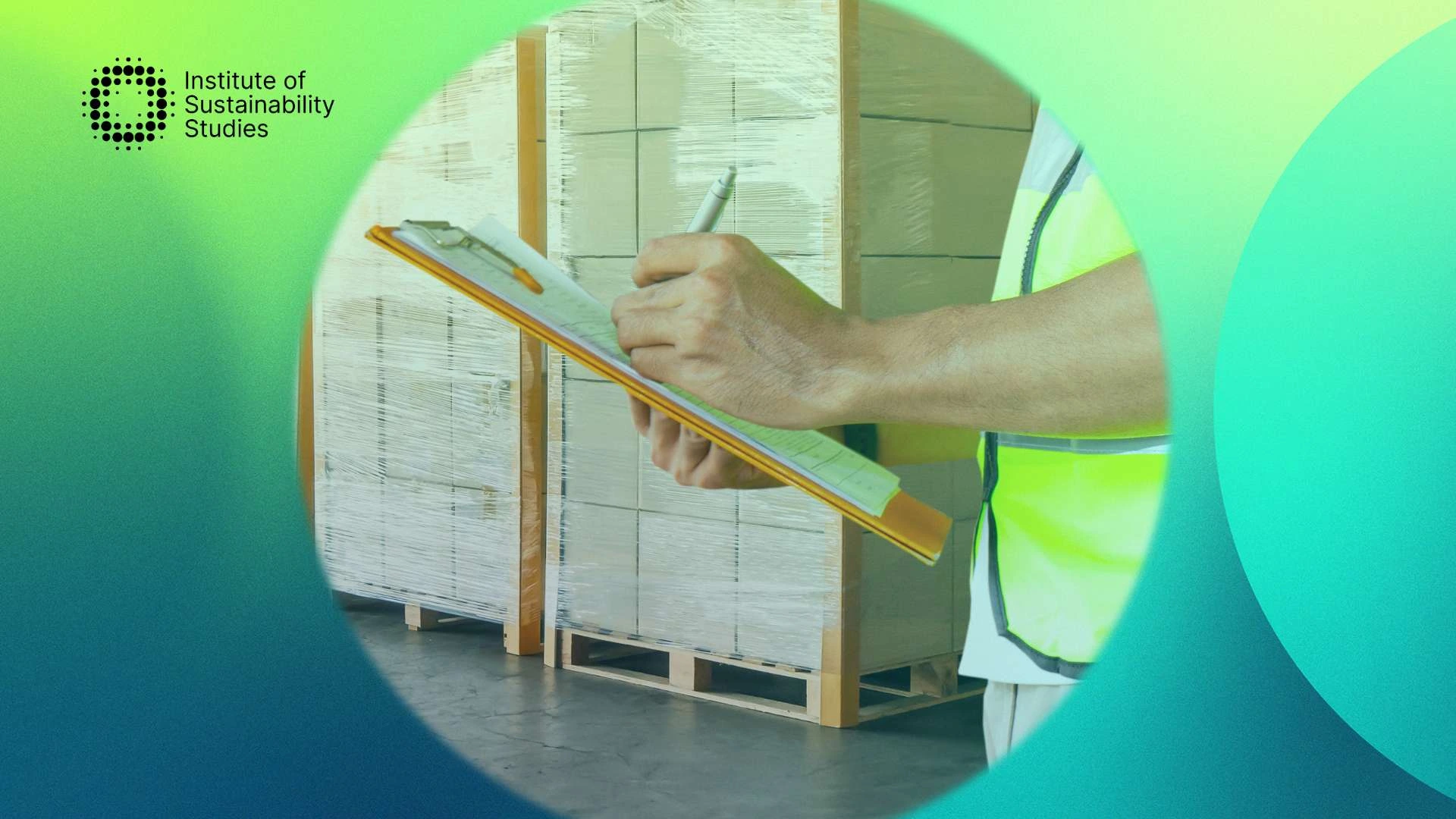From electric vehicles and wind turbines to smartphones and satellites, modern technologies rely heavily on a group of materials few people outside of industry have ever heard of – Critical Raw Materials (CRMs). Despite their low public profile, CRMs are indispensable to both digital and green innovation.
Yet, many of these resources are concentrated in a handful of countries, making global supply chains increasingly fragile. According to the European Commission, the EU depends on China for 98 percent of its rare earth supply – a vulnerability with serious strategic implications.
As pressures mount around material scarcity, ethical sourcing, and regulatory compliance, understanding CRMs is becoming essential to robust corporate sustainability planning. Keep reading to learn more about CRMs and how businesses can future-proof their operations in a resource-constrained world.
What are Critical Raw Materials (CRMs)?
Critical Raw Materials (CRMs) are raw materials that are essential to the economy but have a high risk of supply disruption. The term is most commonly associated with the European Union (EU), which maintains a regularly updated list of CRMs based on their economic importance and supply risk. These materials are vital for the production of renewable energy technologies, high-tech devices, defence applications, and much more. Some examples of CRMs include lithium, cobalt, and graphite.
Here are some of the key characteristics of CRMs:
- Economic importance: Used in crucial industrial sectors like defence, electronics, energy, and mobility.
- Supply risk: Often sourced from a limited number of countries, creating potential for geopolitical tension or disruption.
- Lack of substitutes: Few or no viable alternatives for many CRMs in their specific applications.
- Low recycling rates: Many CRMs are difficult or uneconomical to recover at end-of-life, making supply chain circularity a challenge.
Strengthen supply chain resilience through targeted sustainability training
The EU Critical Raw Materials list
The EU Critical Raw Materials (CRM) List is an official list published by the European Commission identifying raw materials that are essential to the European economy and face significant supply risks. These materials are critical for a wide range of sectors, particularly those driving the digital and green transitions, like defence, aerospace, electric vehicles, and renewable energy.
The list supports the EU’s strategy to:
- Ensure supply chain resilience
- Promote sustainable sourcing
- Stimulate domestic production and recycling
- Encourage research and innovation in material alternatives and substitutions
The CRM list is central to the EU’s Green Deal, Industrial Strategy, and most recently, the Critical Raw Materials Act. Adopted in 2023, the Critical Raw Materials Act outlines concrete steps to:
- Boost domestic extraction, refining, and recycling
- Diversify supply sources outside the EU
- Monitor and reduce strategic dependencies
- Establish strategic reserve and investment tools
Its key targets by 2030 include:
- A minimum of 10 percent of EU annual consumption should come from domestic extraction
- At least 15 percent from domestic recycling
- No more than 65 percent of any strategic raw material should be sourced from a single third country
Is there a UK Critical Raw Materials Act?
The UK does not have a standalone Critical Raw Materials Act akin to the EU’s Critical Raw Materials Act. However, the UK does have a strategic framework and policy direction focused on critical minerals, outlined in the UK Critical Minerals Strategy. It was first published in July 2022 and updated in March 2023 to address similar concerns around the sustainable sourcing of essential materials and supply chain security.
This strategy outlines three key priorities:
1. Accelerating domestic production: Supporting UK-based extraction and processing.
2. Diversifying global supply chains: Reducing overreliance on geopolitically sensitive regions.
3. Promoting circular economy solutions: Investing in recycling, reuse, and material substitution.
Practical Steps for Businesses
Businesses must proactively address their reliance on Critical Raw Materials (CRMs) to reduce supply chain risk, enhance resilience, and meet ever-changing sustainability expectations.
Step 1 – Assess CRM exposure and risk
Begin by identifying where CRMs are used across your operations and supply chain. Evaluate risks related to scarcity, geopolitical dependence, environmental impact, and human rights issues to establish a baseline for action.
Step 2 – Explore substitution opportunities
Invest in R&D or supplier collaboration to discover alternatives to high-risk CRMs. Prioritise materials that offer similar performance with lower environmental or social costs.
Step 3 – Improve material efficiency and circularity
Optimise product design to reduce CRM use and extend product lifespans. Adopt circular strategies like reuse, repair, and CRM recovery through take-back and recycling initiatives.
Step 4 – Diversify supply chains
Reduce reliance on single-source suppliers or high-risk regions by developing resilient, multi-source procurement strategies and building stronger supplier relationships.
Step 5 – Adopt ethical sourcing standards
Implement responsible sourcing policies aligned with global frameworks like the OECD Due Diligence Guidance. Audit suppliers and engage in industry initiatives to ensure compliance and transparency.
Step 6 – Embed CRMs into ESG reporting
Include CRM-related risks, sourcing practices, and performance indicators in your sustainability disclosures. Align with frameworks such as the Corporate Sustainability Reporting Directive (CSRD) or the Global Reporting Initiative (GRI) for clarity and credibility.
Conclusion
As the global economy accelerates towards decarbonisation and digitalisation, Critical Raw Materials will become even more pivotal — and contested. Regulatory frameworks are evolving, supply chains are being re-evaluated, and pressure is mounting for more ethical, circular, and resilient sourcing strategies. Businesses that act now to understand their CRM dependencies and take practical, forward-thinking steps will mitigate risk but also gain a strategic edge. Explore our sustainability courses online to equip your entire organisation with the practical skills and knowledge needed to improve operational efficiency, drive profitability, and meet evolving compliance requirements.
Drive operational efficiency through practical, team-wide upskilling programmes
Dedicated to harnessing the power of storytelling to raise awareness, demystify, and drive behavioural change, Bronagh works as the Communications & Content Manager at the Institute of Sustainability Studies. Alongside her work with ISS, Bronagh contributes articles to several news media publications on sustainability and mental health.
- Bronagh Loughlinhttps://instituteofsustainabilitystudies.com/insights/author/bronagh/
- Bronagh Loughlinhttps://instituteofsustainabilitystudies.com/insights/author/bronagh/
- Bronagh Loughlinhttps://instituteofsustainabilitystudies.com/insights/author/bronagh/
- Bronagh Loughlinhttps://instituteofsustainabilitystudies.com/insights/author/bronagh/











